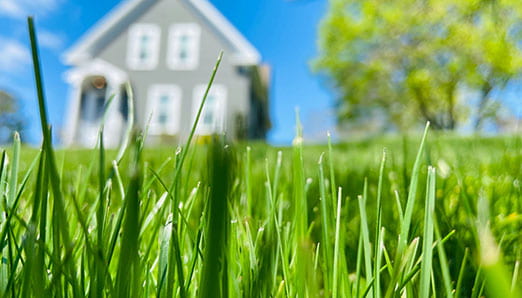Not only do Long Islanders love a good lawn, they know a lot about lawn care, and this knowledge helps build beautiful lawns while protecting the environment.
The creators of “Our Land, Our Water” ran a social media trivia game called, “What is YOUR Lawn Care IQ?,” and the results were eye-opening (and good!).
Lawn Care IQ Survey Outcomes
Watering
More than half of the respondents knew that a typical Long Island lawn only needs about one inch of water per week, including rainfall and irrigation. So, what happens if you add too much water? You can kill your lawn with diseases that live in the soil. Too little water? Lawn grasses are capable of going dormant in dry periods, recovering when rainfall returns.
Bottom line: Too little water is better for your lawn than too much, but watering your lawn one inch per week is just right.
Grasscycling
An overwhelming number of respondents knew what “grasscycling” is. No, it’s not leaving the recycling bins on the lawn or riding a bicycle on a grass track (both silly answers, perhaps). Grasscycling is the practice of mulch-mowing lawns and leaving clippings where they land, rather than bagging them. Why do this? Those lawn clippings have all the nutrients (read- fertilizer) your lawn needs, plus organic matter that breaks down into soil. This does not cause thatch, by the way.
Bottom line: Grasscycling is one way you can do more by doing less (YouTube).
Pesticides
Nearly all respondents (88%) know that a landscaper who is paid to treat your lawn with pesticides MUST have a pesticide applicator’s license. This is NY State law. Is the same true for fertilizers? Actually, no, unless the product is a “weed and feed,” which combines fertilizer with targeted weed killers.
Bottom line: Hire someone with a license (and insurance), because they will have training to apply pesticide products correctly, reducing risks to people and the environment.
About Our Land Our Water
The “Our Land, Our Water” campaign, led by NYSIPM and funded by NYSDEC, is an effort to protect Long Island’s drinking water from contamination from lawn care chemicals. This also protects Long Island’s many lakes, streams, bays, the Long Island Sound and the ocean.

